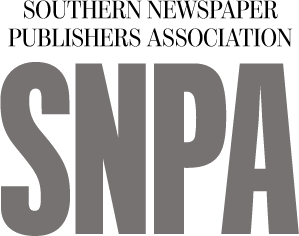Emanuel confirmed; NLRB management majority restored
On the evening of Monday, Sept. 25, the U.S. Senate voted 49 to 47 to confirm William Emanuel to the National Labor Relations Board. This is great news for employers everywhere, as a management majority is now restored!
In recent years, under President Obama, the NLRB had a 2-1 union-friendly majority. Last spring, President Trump nominated Emanuel, as well as Marvin Kaplan. Kaplan was confirmed on Aug. 10. With Emanuel's confirmation, all five seats on the Board are now filled, giving Republicans a 3-2 majority.
In light of this development, the NLRB is very likely to revisit a number of significant legal issues from the past eight years that have tilted the playing field in favor of unions, including, but not limited to, the following:
- Independent contractor status under the NLRA.
- A return to common sense standards for evaluating whether handbooks and work rules interfere with employee rights.
- The NLRB's controversial decision on micro-units.
- The NLRB's controversial ruling on joint employer status.
- Decisions disrespecting employer property rights.
- Decisions impermissibly limiting the First Amendment rights of employers.
- Granting access to employer e-mail systems.
- The NLRB's "Quickie Election" rule.
- Erosion of "management rights" clauses.
- Decisions protecting obnoxious/obscene/harassing behavior on the part of employees.
- Decisions making it difficult for employers to conduct confidential workplace investigations, such as those involving claims of sexual harassment.
- Decisions requiring employers to turn over to unions witness
statements obtained during an employer's internal investigation.
I will keep you updated.
New NLRB general counsel
The term of current NLRB General Counsel Richard Griffin expires on Nov. 4. In this writer's opinion, General Counsel Griffin cannot be replaced fast enough! President Trump has nominated Peter Robb to be the new NLRB general counsel. Robb, a management-side labor attorney from Vermont, has been critical of many of the Obama Board's decisions, including the NLRB's "Quickie Election" rule.
The NLRB general counsel investigates and prosecutes unfair labor practice cases. He decides which unfair labor practice cases are litigated and potentially reach the five-member NLRB for decision. The general counsel controls which cases the board prioritizes and pursues. Significantly, when a case reaches the NLRB for decision, the general counsel can ask the NLRB to change existing precedent.
On Oct. 4, Senator Lamar Alexander held a hearing on Robb's nomination. During Robb's testimony, he stated that he would uphold the core values of the National Labor Relations Act, including the right to refrain from union activity. He further stated that he would make it a priority to ensure the rights of employees who dissent from their unions' positions, and that he would set a higher bar for unions to prove that they have the majority support of workers before certifying an election.
Peter Robb will bring fair and balanced decision-making to the board. During the Oct. 4 hearing, Senator Alexander stated, "When the Board is too partisan, it creates instability in our nation's workplaces and creates confusion for employers, employees and unions."
Court reverses NLRB, respects property rights
Fred Meyer Stores ("employer") and the United Food and Commercial Workers Union ("union") agreed upon a written memorandum that governs non-employee business agents' visits to company premises:
"Business agents have the right to talk briefly with employees on the floor, to tell those employees they are in the store, to introduce themselves, and to conduct brief conversations as long as the employees are not unreasonably interrupted. Such conversations should not occur in the presence of customers.
"Business Representatives have the right to distribute fliers to employees on the floor as long as it is done quickly. The employees are not urged to stop what they are doing to read the materials at that time and further, that the materials are not passed out in the presence of customers.
"Business agents have the right to distribute materials in the break room. Lengthy conversations and discussions should always take place in the break room."
The parties agreed that "briefly" meant "no longer than two minutes," and the practice was that no more than two non-employee union representatives visited at one time.
There was a change in union leadership that brought in reinforcements from the International to energize the union's efforts. The new leadership ignored the access memorandum, and on one occasion, eight non-employee union representatives entered the store.
The employer then raised the terms of the memorandum. One union representative replied that she had the right to talk to employees as long as she wanted. The union representative said, "You'll have to do what you have to do and I'll have to do what I have to do." In response, the police were called. When the police asked the union representatives to leave, they refused and were arrested.
In a 2-to-1 decision (with a vigorous dissent by Republican NLRB Member Harry Johnson), the NLRB ruled that the employer violated the law by limiting the non-employee agents' right to contact store employees and for having the union representatives arrested. The board ignored the clear language of the memorandum.
The court reversed, holding that, as a general rule, non-employee union organizers or representatives have no right to be on private property; property rights generally prevail over the rights of non-employees under the National Labor Relations Act. The court noted that the union did not comply with the agreement and was in violation from the beginning because it failed to contact management in advance of entering the store.
The court was harshly critical of the NLRB, stating, "The Board's opinion is more disingenuous than dispositive; it evidences a complete failure to reasonably reflect upon the information contained in the record."
The court viewed the union representatives as trespassers and ruled that the employer did not cause the arrests. The arrests occurred when the union representatives failed to follow the orders of the police officer. Had the union representatives left the store when the police asked, no one would have been arrested.
Key to this decision was the existence of the written memorandum outlining the circumstances under which non-employee union representatives can enter the premises.

L. Michael Zinser is the founding partner of The Zinser Law Firm in Nashville, Tenn. The firm, which has a heavy concentration of clients in communications media, represents management in the area of labor and employment. Zinser can be reached at (615) 244-9700 or mzinser@zinserlaw.com.






